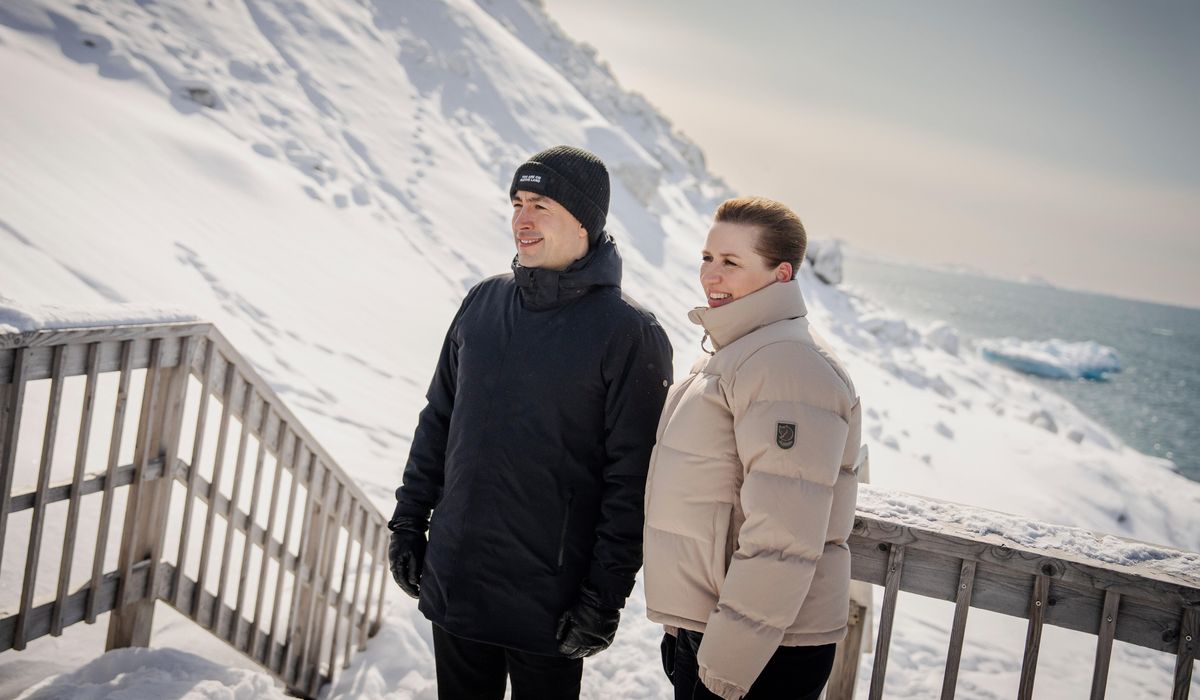


The vast majority of Greenlanders oppose U.S. efforts to take control of the country, a new study shows, indicating that President Trump’s aggressive rhetoric concerning the island nation may be polarizing its citizens.
According to a new study released by Enodo Global, 86% of Greenlanders oppose U.S. control or annexation, with only a small minority expressing support or neutrality. Enodo Global is a data analysis firm that focuses on social risk and social impact research. The report points to Greenland’s strong indigenous heritage and history of living under foreign rule as key reasons for the strong resistance.
“Greenlanders strongly identify with their indigenous heritage and cultural autonomy,” the researchers write. “This identity is shaped by a legacy of survival in the Arctic and deeply rooted narratives of self-determination. As a result, any external influence is perceived as a direct threat to their identity.”
Since taking office in January, President Trump has ramped up his rhetoric concerning the future of Greenland. Mr. Trump has said the U.S. needs to take complete control of the island nation, both for security and economic reasons.
The rhetoric has been met with staunch opposition from leaders in Greenland and Denmark, which still controls Greenland’s foreign and defense policy. Denmark colonized the island of Greenland in the 18th century and maintained near total control until the late 1970s.
The report notes that while Greenland may have little love for their old colonial overlords, most citizens differ on how quickly the nation should sever ties with Denmark.
“While many Greenlanders advocate for full independence from Denmark, others emphasize the benefits of continued Danish support in areas like education, welfare, and governance,” the report reads. “This divergence creates a fragmented narrative landscape and complicates the path toward self-rule.”
Denmark, for its part, is more sharply divided on the issue of U.S. involvement in Greenland. According to the report, some in the kingdom invite U.S. control for security and economic reasons, while others maintain that it would be a violation of sovereignty.
If the U.S. wishes to assert more control over Greenland, the report offered several options for American leaders.
“Design diplomatic and economic engagements that affirm Greenlandic cultural identity and support their aspirations for self-determination. Use language, symbols, and outreach efforts that resonate with indigenous values and local traditions to build trust,” the report says.
In addition, U.S. leaders should promote pro-U.S. actors within Greenland, including those within the Qulleq party. The party, formed in 2023, was one of the only parties during the 2025 election to signal support for Mr. Trump’s Greenland desires. The party faced a wave of anti-U.S. rhetoric and received no seats in government.
The report also suggests providing pathways for Greenland to move away from its economic dependency on Denmark.
“Introduce initiatives that reduce Greenland’s financial dependency on Denmark by promoting sustainable, locally led economic development,” the report reads. “Ensure these efforts preserve Greenland’s political autonomy and cultural identity while fostering mutual benefit.”
• Vaughn Cockayne can be reached at vcockayne@washingtontimes.com.
